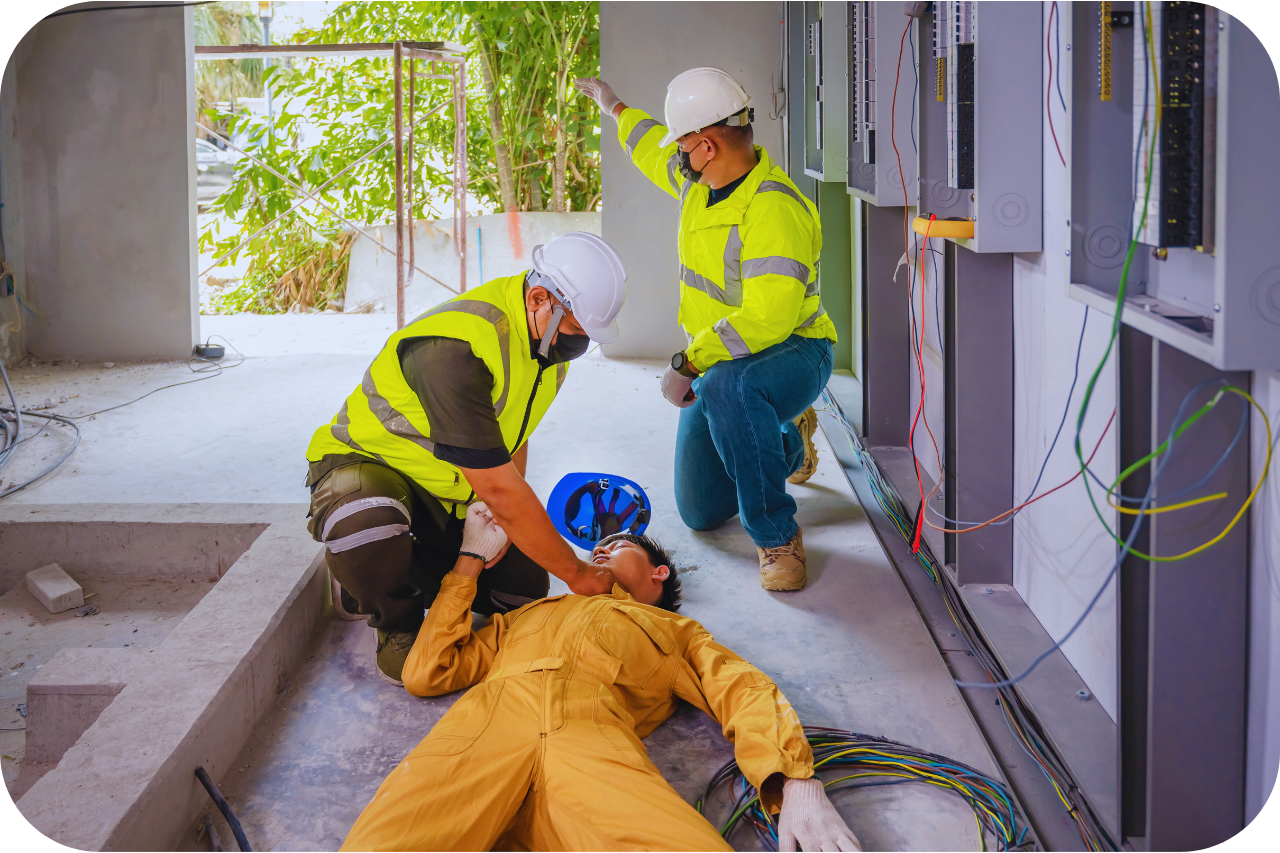Introduction
In today's hectic and technology-driven world, the need for focused unexpected emergency training has never been even more important. Amongst these necessary trainings, the Reduced Voltage Rescue (LVR) CPR training course stands apart as a crucial skill set for professionals teaming up with power systems. This write-up delivers a detailed overview of what you'll find out in an LVR CPR course, describing important capabilities as well as knowledge that empower individuals to behave decisively in emergencies including low-voltage electrical equipment.
What You'll Know in an LVR CPR Course: Essential Skill-sets for Unexpected Emergency Situations
Understanding Reduced Current Electrical Systems
Low voltage power systems are omnipresent in numerous sectors, including construction, manufacturing, and also telecommunications. Understanding the working characteristics of these bodies is essential for any person associated with similar areas.
Key Elements:
- Definition of low current (commonly below 1000V air conditioning or 1500V DC) Common applications of low voltage systems Safety requirements and laws governing reduced current operations
The Importance of CPR Training
Cardiopulmonary Resuscitation (MOUTH-TO-MOUTH RESUSCITATION) is a lifesaving approach that could be critical in emergencies where somebody's heart has actually stopped or they have ceased breathing.
Key Points:
- The studies responsible for cardiac arrests How fast application of mouth-to-mouth resuscitation may enhance survival rates The duty of mouth-to-mouth resuscitation in office security protocols
Combining mouth-to-mouth resuscitation along with Reduced Current Rescue Training
One of the unique facets of the LVR CPR course is its own assimilation of saving methods details to electric accidents alongside traditional mouth-to-mouth resuscitation training.
Benefits Include:
- Enhanced preparedness to respond to each heart emergency situations and electrocution incidents. A complete understanding of exactly how to properly move toward targets in live electrical situations.
Module Break down of the LVR CPR Course
Module 1: Intro to Reduced Voltage Saving Procedures
In this component, individuals learn more about standard saving methods for low current incidents.

Topics Covered:
- Risk examination prior to carrying out a rescue. Identifying dangers linked with live LV panels.
Module 2: UETDRRF004 - Perform Saving coming from a Real-time LV Panel
This device concentrates on practical capabilities needed for rescuing people from online reduced current panels.
Learning End results:

- Steps to carefully isolate energy before carrying out a rescue. Techniques for securely clearing away sufferers coming from harmful environments.
Module 3: Practical Function of Mouth-to-mouth Resuscitation Techniques
Participants participate in hands-on training treatments where they perform essential CPR techniques.

Skills Developed:
- Chest squeezings and rescue breaths. Use of Automated External Defibrillators (AEDs).
Module 4: Urgent Feedback Protocols
Understanding when and also how to escalate conditions is crucial. This component covers urgent response protocols particular to power incidents.
Discussion Scores:
- When to get in touch with emergency situation services. How to update bystanders effectively without leading to panic.
Real-Life Circumstances as well as Method Drills
One key element that creates the LVR CPR course helpful is its own focus on real-life situations. Participants are going to participate in extensive likeness workouts that resemble prospective emergencies they may experience on-site.
The Task of Communication In The Course Of Emergencies
Effective interaction may conserve lifestyles throughout emergencies. This segment stresses methods for clear communication amidst chaos.
Important Approaches Include:
- Using succinct language when routing bystanders. Ensuring crystal clear interaction along with emergency situation -responders upon their arrival.
Frequently Inquired Questions
1. What does UETDRRF004 entail?
UETDRRF004 refers specifically to the competency unit concentrated on performing saves coming from live reduced current doors, instructing essential capabilities required for risk-free rescues.
2. Is actually license given after completing the LVR course?
Yes, upon productive finalization, individuals receive qualification explaining they are actually trained in low current saving as well as mouth-to-mouth resuscitation techniques.
3. Can I locate a 'CPR LVR course near me'?
Absolutely! Numerous instruction companies offer regional courses; merely search "CPR LVR courses near me" online to locate choices accessible in your area.
4. The length of time does the training take?
Typically, an LVR CPR course lasts between one day to pair of days depending upon the carrier as well as intensity of material covered.
5. Exist qualifications for joining this training?
While there are actually generally no strict prerequisites, possessing essential emergency treatment understanding may be beneficial just before joining this focused training.
6. Why should I opt for UETDRMP007 over UETDRRF004?
Both devices serve distinct functions; while UETDRMP007 focuses much more generally on conducting saves cpr lvr course from real-time low voltage doors, UETDRRF004 focuses specifically on useful skill-sets needed during those rescues.
Conclusion
The value of being prepared may not be overemphasized when it concerns urgent scenarios involving reduced current electrical systems. By registering in an LVR CPR course, you not merely equip your own self with life-saving capabilities yet also prepare on your own mentally as well as physically for unforeseen obstacles within your workplace or day-to-day live. As we have checked out throughout this article, what you'll find out in an LVR CPR course encompasses a variety of vital skills that considerably boost your ability to respond efficiently during emergencies-- making it a smart investment in to your individual safety toolkit along with that of others around you.
Whether you're finding official certification or even simply want to reinforce your expert system concerning electric safety measures and first aid actions, pursuing such training provides important understandings that resonate much past first learning outcomes-- it nurtures self-confidence and also preparedness where it matters most!